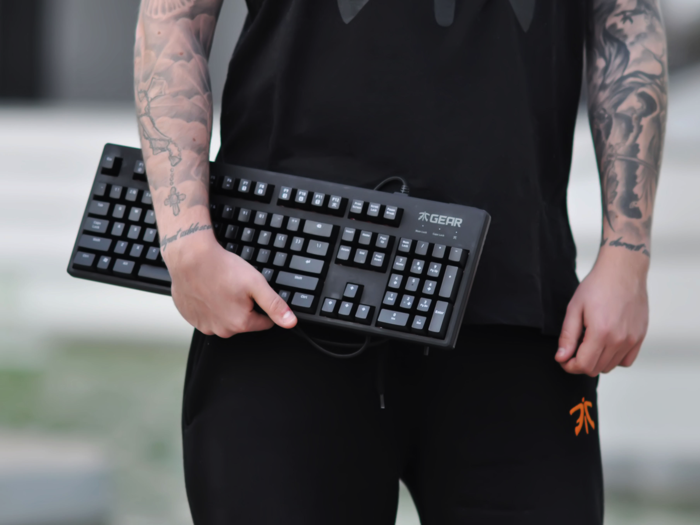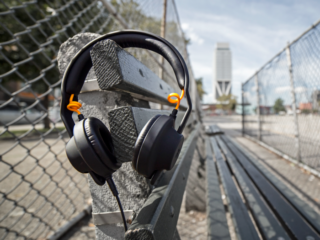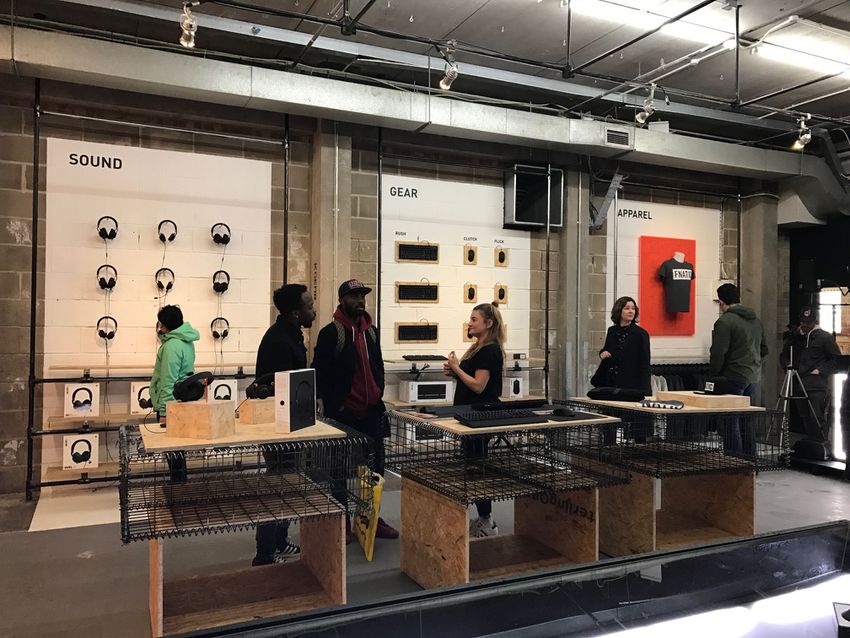Fnatic is one of the most successful eSports teams in the world today. It’s also one of the most recognizable brands in eSports, with teams competing across 10 games, including League of Legends, Counter-Strike: Global Offensive, Overwatch, Dota 2 and Heroes of the Storm. These teams have competed in over 600 events and won over $7 million in prize money.
Founded in 2004 by Sam Matthews, who sold his car to send his team to compete at its first eSports event in Las Vegas, Fnatic is now a global company with its headquarters based in London and offices in Los Angeles, Berlin and Belgrade and gaming houses in LA, Berlin and Kuala Lumpur. It also opened its first Fnatic team store, called the Bunkr, in London last year—with plans to build more across the globe.
Wouter Sleijffers, CEO at Fnatic, was introduced to eSports through his work at online payments company, Skrill. He’s charged with building out the brand’s business opportunities, which includes a line of Fnatic Gear hardware and apparel. Reaching over 30 million fans monthly through its social media channels, Sleijffers talks about the opportunities eSports has opened up for teams in this exclusive interview with [a]listdaily.

How are you applying best practices from traditional sports teams, especially soccer clubs, as you build Fnatic?
We have little experience with the best practices in traditional sports teams. But in essence, you can see that the same logic and challenges apply. This means that (for example) I, personally take hardly any decisions that involve players, and leave that to the people we trust and are much better at making these decisions. We’re mostly busy with creating an environment where our pro gamers can be at their best, and there’s a lot happening behind the scenes that equally needs attention. Traditional sports and eSports are coming closer every day and with our recently launched venture with AS Roma, where Fnatic manages AS Roma’s FIFA team, we’ll both have access to our knowledge and best practices.
What’s your approach been with the Fnatic eSports store?
With Fnatic, we have a vision for ourselves and eSports, which we would rather call the “New World Sport.” The Fnatic Bunkr, our eSports store in London, brings that vision a step closer. It’s super exciting for our fans, pro gamers and everyone who loves competitive gaming, since we created a very cool store, with great eSport products and loads of events.
What can you learn from the success of traditional sports when it comes to jerseys, logos and merchandise?
Sports fans love team merchandise and it is no different for eSports fans. At the same time, we believe we can do better than that. We design, develop and engineer most of our products ourselves—100 percent Fnatic. Because eSports is something different and unlike anything we’ve seen before, the same goes for what we do at Fnatic.
What’s unique about eSports that can be applied to this type of merchandise marketing?
ESports has an immense global footprint and already has many heroes. Traditional advertising does not work anymore, but fans and enthusiasts still like to see the new things that the heroes and influencers are wearing and using. Being successful in competition is one, but doing and making things that people love regardless of the day-to-day results is another thing we’re pretty good at.
What have you seen thus far when it comes to sales of jerseys and merchandise aimed at females and children?
There’s definitely a demand for female and children jerseys and merchandise. A few things are relevant: don’t do the usual and certainly not stigmatize. You’ll likely want to develop and optimize your marketing and sales channels for it. For example, Fnatic female jerseys are more popular on Amazon than in our own shop. We’ve also recently introduced a Fnatic kit for children, where we likely need to do some more work on gifting.

What’s the most challenging part of releasing the Fnatic Rush Pro gaming gear in the crowded peripheral and hardware market?
The question we get most is if we really made all of these products ourselves. The answer is yes, Fnatic Gear is designed and engineered by Fnatic. Besides all the years of eSports experience that goes into our products, Fnatic Gear is unique in that you don’t buy just a piece of hardware with technical (useless) features. Fnatic Gear is here to make your gameplay better, to let you tap into the experience of our Pro Gamers, get access to exclusive content and be our VIP at many of our events, and receive further goodies.
 How have you developed your own technology for that gaming gear?
How have you developed your own technology for that gaming gear?
We develop all of our current and future generation of products. The exception is our headset, the DUEL, which is a collaboration with headset company AIAIAI. This is because we loved their modular headset concept, which is a perfect fit for our vision that gaming hardware can be stylish and used for other purposes than gaming, such as music listening. So, with the DUEL, you buy at least two headsets in one, although multiple variations are possible.
Does having your own gear impact sponsorships with companies that make gaming mice?
It means that we can’t partner with everyone—as usually, these companies demand exclusivity with their product. As for ourselves, we like to give the choice to our pro gamers. If they prefer mice from another brand, they’re free to use them. It simply means we’ll need to put more work into continuing to make the best products.
What has entering the book business with ‘How to be a Professional Gamer‘ opened up for Fnatic?
The book business is not core to our activities. But of course, we don’t want to take away the chance for many of the eSports fans and aspirational pro gamers to read a great book about everything that goes into going pro in eSports. There’s a lot more that goes into it than one might think. Yet, it’s still the best job in the world to have!
What opportunities do you see for the store moving forward?
Although the store itself is a significant milestone in our mission, it’s really just a small seed we planted. When you set foot in the store, you realize that the opportunities are endless. Let’s say that, although we don’t have a stadium or arena with Fnatic, when we have launched multiple Bunkrs across the globe and make them all connected as much as eSports is, we’ll have the largest physical 24/7 eSports stadium for all kinds of competitive gaming fans in the world.

